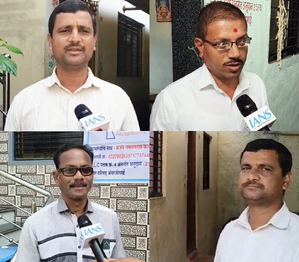Mumbai: Under the Pradhan Mantri Awas Yojana-Urban (PMAY-U), the residents of Maharashtra’s Beed district have seen their lives being ‘upgraded’ from kuccha to pucca houses. Lakhs of them who till date lived in huts and makeshift houses are now living in their own pucca houses and they are thankful to Modi government for this favour.
Several PMAY beneficiaries in Beed shared their experiences with IANS on their transformation.
Ankush Ramrao Khose, one of the residents who benefited from the program, remarked, “This scheme has helped me build a proper house, and I am grateful to PM Modi for making this possible. The initiative is has become a strong support for people like us.”
Ajay Ganpatrao Jadhav, another beneficiary, emphasised the comfort and stability provided by the program.
“Earlier, I lived in a ‘kachha’ (temporary) house, which lacked security and comfort. Now, I have a permanent home. The central government has done a great job in reaching out to those in need, and I hope that a double-engine government, led by the BJP, can further accelerate Maharashtra’s development,” Jadhav said.
Sandip Sudhakar, also among those who received housing assistance, shared that the scheme brought substantial change to his life.
“Pradhan Mantri Awas Yojana has given me a stable roof over my head,” he noted. “I learned about the scheme through a television advertisement, and it encouraged me to apply. The initiative has indeed made a difference, as you can see the improvement it has brought to our living conditions. PM Modi’s work for the welfare of the poor is evident here.”
The PMAY was launched by the Ministry of Housing and Urban Affairs on 25th June 2015, aiming to address housing shortages and fulfil the goal of “Housing for All” by ensuring a “pucca” (permanent) house for eligible urban households.
PMAY-U aims to provide housing across categories, particularly targeting economically weaker sections (EWS), lower-income groups (LIG), and middle-income groups (MIG) in urban areas, including slum dwellers.
–IANS


Comments are closed.